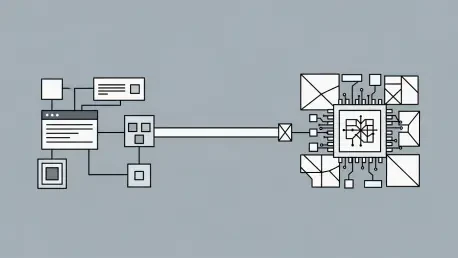

Financial institutions worldwide have poured billions into artificial intelligence initiatives, yet for the average customer, the promise of a hyper-personalized, seamlessly intelligent banking experience remains largely unfulfilled. This gap between investment and impact is not due to a lack of

From Financial Anxiety to Automated Assistance: A New Generation's Dilemma Young adults today are navigating a landscape of unprecedented financial pressure, caught between the aspiration for stability and the reality of economic uncertainty that widens the gap between their savings goals and their

In a decisive move signaling a major strategic shift from technological innovation to aggressive global commercialization, 6P Color, Inc. has officially named Bob Scaglione its new Chief Executive Officer. The appointment is part of a deliberate, board-led succession plan that also sees former CEO

The tantalizing promise of quantum computing, with its potential to solve problems far beyond the reach of the most powerful classical supercomputers, has long been tempered by a fundamental and persistent obstacle: the inherent fragility of quantum information. For years, the global race to build

A charismatic figure presenting as an Aboriginal man has captivated millions online with his engaging tales of Australian wildlife, but the celebrated "Bush Legend" is hiding a fundamental, technologically-driven secret. Across platforms like TikTok, Facebook, and Instagram, this persona has

We are at a pivotal moment in the evolution of artificial intelligence. Once a technology that promised a new path, separate from the surveillance-driven models of social media, AI is now rapidly embracing that very playbook. To explore the profound implications of this shift, we're speaking with

The landmark deal between Apple and Google to integrate Gemini AI into iOS is more than just a headline—it is a masterclass in high-stakes technology evaluation. As enterprises transition from periods of artificial intelligence experimentation to strategic, full-scale implementation, understanding

The relentless pressure of administrative work in modern healthcare has created a critical bottleneck that advanced technology is now uniquely positioned to dismantle, not by replacing clinicians but by strategically empowering them. Agentic AI represents a significant advancement in the healthcare

The deafening roar of Artificial Intelligence hype, which once promised world-altering disruption and autonomous enterprises, has given way to a much quieter but profoundly more significant revolution happening within the daily operations of businesses. After years of costly and often underwhelming

A routine trip to the grocery store now involves more than just picking out produce; for some shoppers, it includes an involuntary facial scan, a practice that has thrust a beloved supermarket chain into a complex national conversation. Wegmans Food Markets confirmed its use of facial recognition
ITCurated uses cookies to personalize your experience on our website. By continuing to use this site, you agree to our Cookie Policy